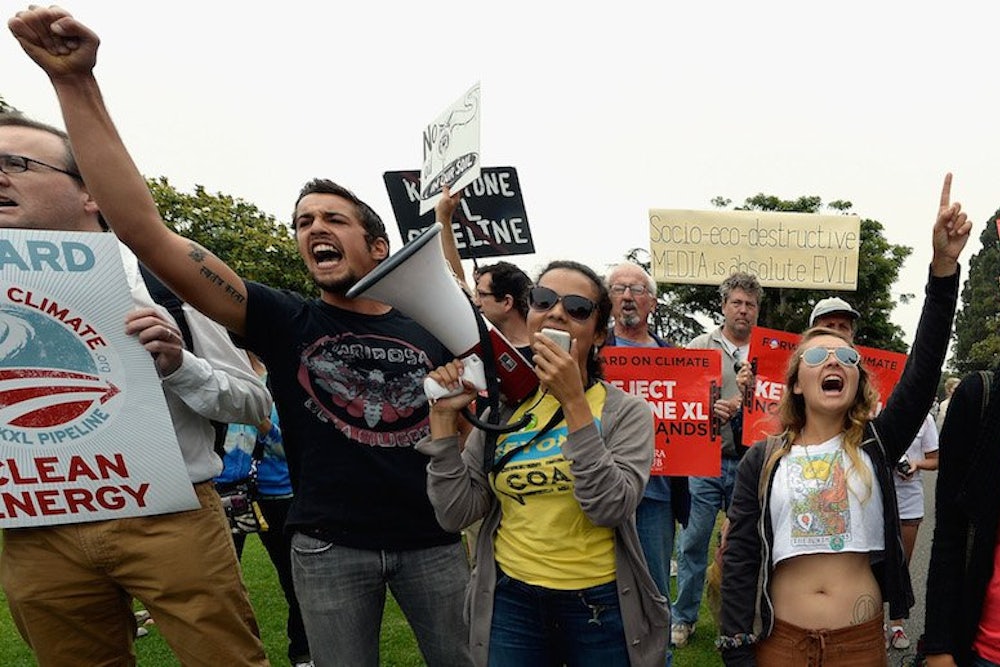On Tuesday, environmentalists were so elated that President Barack Obama vetoed Republican legislation to build the Keystone XL pipeline they staged a rally outside the White House. But what are they celebrating? This wasn’t an outright rejection of TransCanada's permit to build the pipeline—the veto wasn't even a surprise.
That didn't stop Keystone opponents from overreacting. "This veto is conclusive proof that activism works," said 350.org Executive Director May Boeve. Senator Bernie Sanders of Vermont agreed. "This veto tells the world that our nation takes seriously the planetary crisis of global warming and that we will not support legislation that would let a Canadian oil company ship some of the dirtiest oil on the planet across the United States," he said. The billionaire climate activist Tom Steyer was equally impressed: “Today, President Obama stood up to the Republican-controlled Congress by vetoing their attempt to force approval of the Keystone XL pipeline—fighting back against the fossil fuel special interests pushing for the pipeline,” Steyer said in a statement immediately after the veto was announced.
BREAKING: President Obama just vetoed the #KeystoneXL bill! pic.twitter.com/xXvzFPanxm
— NextGen Climate (@NextGenClimate) February 24, 2015Oil Change International, on the other hand, adopted a more measured tone. "The President's veto of the KXL tar sands pipeline bill was fully expected but it is very much appreciated," said Stephen Kretzmann, executive director of the organization.
Obama has long objected to Republicans circumventing a normal federal review process to determine the environmental and economic impact of the pipeline. His argument for the veto all along has been about process—not about the ecological merits of not building the pipeline, as some environmentalists claim. Even if Obama sounded skeptical of pro-Keystone arguments, he's made it clear that his veto is only to stop Republicans from overstepping their congressional authority.
We knew how the political fight would end, and yet Republicans leaders still pursued it as their first priority of the newly convened Congress. Expect more useless fighting as Republicans attempt to override the veto with a congressional majority vote they know they won’t get.
Once the State Department finally completes its review, Obama might still approve the project. Or, he could hand environmental activism a rare victory over the oil industry by rejecting TransCanada’s pipeline permit. Environmentalists claim that Obama's signals—including this veto—point that way.
Whatever the case, it will be hard for either side to top the sheer drama of the (climate-change denying) Heartland Institute's statement. “In one fell swoop President Obama killed thousands of American jobs, raised domestic energy prices, and ensured greater U.S. dependence on oil from nations that are openly hostile to freedom, democracy, and the United States of America," James Taylor, a senior fellow at Heartland, said in a statement. "In his entire life, Hugo Chavez never had a single day when he inflicted so much harm on America’s economy and national security.” If the activists get their way and Obama vetoes the entire Keystone Project, environmentalists will be able to say whatever the hell they want. They may not be heard over the inevitable conservative screaming.
